The Truth About Show Choir Judges
The Truth About Show Choir Judges
Though many see show choir judges as cold-staring, verdict-passing panels of jurists that swing the ruthless ax of criticism, that's rarely the case. These men and women are artists, directors, choreographers, performers, and educators.
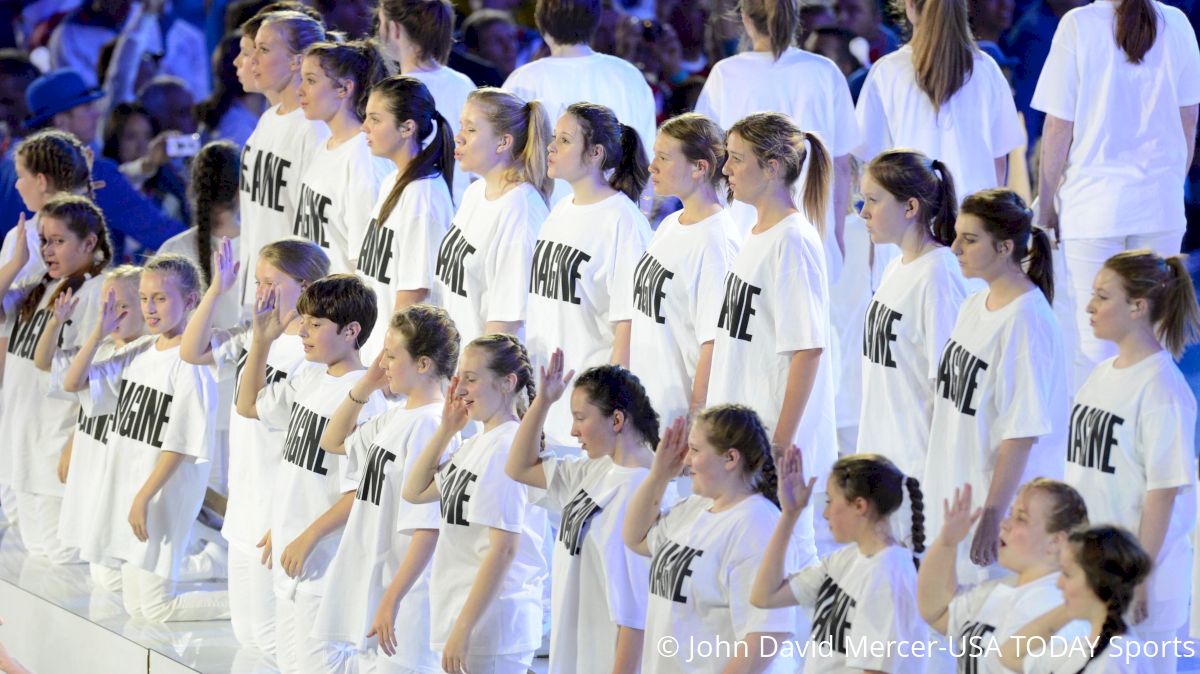
By Damon Brown
They sit silhouetted against a backdrop of dimly lit bankers lamps. Seen only as shadowy heads and shoulders, they hunker over a computer screen, take notes, and peer through binoculars while deciding the fates of a thousand young men and women in a single day.
They are show choir judges.
Though many see them as cold-staring, verdict-passing panels of jurists that swing the ruthless ax of criticism, that's rarely the case. These men and women are artists, directors, choreographers, performers, and educators, who, almost without exception, truly love and admire the students they critique.
"The role of an adjudicator is to be willing to say the difficult things," said John Burlace, the associate director of choirs at Carmel High School in Indiana. "But we need to honor the efforts of the individuals and always be kind in wanting to encourage them to improve."
The reputation and future of competitions often hinge on the judges they choose. A positive and constructive panel instills trust in the contest and makes people want to come back year after year. But hiring even one judge who is viewed as mean-spirited, biased, or unqualified can doom a competition quickly to the history books.
Kevin Breazeale, one of the organizers of the five-city Heart of America National Contest Series, said the hiring process begins with a Q&A session to ensure each judge is comfortable with the competition's scoring system.
In addition, Heart of America is one of a growing group of competitions that takes judging integrity one step further to ensure fairness.
"We have each adjudicator sign an adjudication fairness agreement," Breazeale said. "This pledges that each judge will set aside any bias, relationships, reputations, or politics and simply call the shots as they see them."
And while the show choir industry is still one where "everybody knows everybody," judges consider their integrity and fairness paramount.
"I will not work with or clinic a group if I know I will be judging them at a later date," said Steve Woodin, a retired director from Urbandale High School in Iowa. "I've been asked many times, and I tell directors it would be a conflict of interest. Personally, I feel it's the only fair way to do it."
Students and parents may never realize it, but judges feel the weight of responsibility when they're invited to an event. Knowing that thousands of dollars have been spent and countless hours of sweat, tears, and hard work have been poured into every show they see carries a burden for judges. They want to be fair, and they want to get it right.
"When I judge, I work hard to keep track of everything," Carmel High School director Kathrine Kouns said. "Vocally, I look at every vocal nuance, every cut-off, how a group adapts their tone to different genres of music and styles of singing…it all matters."
However, she said, it goes a step further than that.
"What it often comes down to, though, is how a group can cross over the boundary of the stage and take you on a journey with their art," Kouns said. "With all the technique and important training, there's still a part of judging that is simply a gut reaction to what's being performed."
Innovative choreographer and show designer Jen Oundjian from John Burroughs High School in California explained that sometimes it can also be tempting for judges to lose sight on adding positive acknowledgement when critiquing performances.
"I try to be totally honest and keep my comments to what the kids can fix and not what they've been given by the director," Oundjian said.
For Tara Tober, a professor of dance at Kent State, her judging philosophy comes down to consistency.
"I strongly feel it's my responsibility to put principles before personalities and keep out any feelings I have about people, preferences of style, or teaching methods," Tober said. "Also, from daytime to nighttime rounds, I work hard to stay consistent on scoring categories like costuming and show design. If you give somebody a 7 on costumes in the day round and a 9 at night, then you've lost your credibility."
The difficult task of ranking groups against one another can be a headache-inducing struggle, but many judges feel rewarded simply by witnessing the passion and tenacity of gifted students shine through in a performance.
"I share my own struggles when I talk to performers," Tober said. "Incredible trust is gained when you model disclosure, because we all struggle with self-acceptance and fear of judgment. When I see a group being 100 percent honest on stage, I simply fall in love with them."
They sit silhouetted against a backdrop of dimly lit bankers lamps. Seen only as shadowy heads and shoulders, they hunker over a computer screen, take notes, and peer through binoculars while deciding the fates of a thousand young men and women in a single day.
They are show choir judges.
Though many see them as cold-staring, verdict-passing panels of jurists that swing the ruthless ax of criticism, that's rarely the case. These men and women are artists, directors, choreographers, performers, and educators, who, almost without exception, truly love and admire the students they critique.
"The role of an adjudicator is to be willing to say the difficult things," said John Burlace, the associate director of choirs at Carmel High School in Indiana. "But we need to honor the efforts of the individuals and always be kind in wanting to encourage them to improve."
The reputation and future of competitions often hinge on the judges they choose. A positive and constructive panel instills trust in the contest and makes people want to come back year after year. But hiring even one judge who is viewed as mean-spirited, biased, or unqualified can doom a competition quickly to the history books.
Kevin Breazeale, one of the organizers of the five-city Heart of America National Contest Series, said the hiring process begins with a Q&A session to ensure each judge is comfortable with the competition's scoring system.
In addition, Heart of America is one of a growing group of competitions that takes judging integrity one step further to ensure fairness.
"We have each adjudicator sign an adjudication fairness agreement," Breazeale said. "This pledges that each judge will set aside any bias, relationships, reputations, or politics and simply call the shots as they see them."
And while the show choir industry is still one where "everybody knows everybody," judges consider their integrity and fairness paramount.
"I will not work with or clinic a group if I know I will be judging them at a later date," said Steve Woodin, a retired director from Urbandale High School in Iowa. "I've been asked many times, and I tell directors it would be a conflict of interest. Personally, I feel it's the only fair way to do it."
Students and parents may never realize it, but judges feel the weight of responsibility when they're invited to an event. Knowing that thousands of dollars have been spent and countless hours of sweat, tears, and hard work have been poured into every show they see carries a burden for judges. They want to be fair, and they want to get it right.
"When I judge, I work hard to keep track of everything," Carmel High School director Kathrine Kouns said. "Vocally, I look at every vocal nuance, every cut-off, how a group adapts their tone to different genres of music and styles of singing…it all matters."
However, she said, it goes a step further than that.
"What it often comes down to, though, is how a group can cross over the boundary of the stage and take you on a journey with their art," Kouns said. "With all the technique and important training, there's still a part of judging that is simply a gut reaction to what's being performed."
Innovative choreographer and show designer Jen Oundjian from John Burroughs High School in California explained that sometimes it can also be tempting for judges to lose sight on adding positive acknowledgement when critiquing performances.
"I try to be totally honest and keep my comments to what the kids can fix and not what they've been given by the director," Oundjian said.
For Tara Tober, a professor of dance at Kent State, her judging philosophy comes down to consistency.
"I strongly feel it's my responsibility to put principles before personalities and keep out any feelings I have about people, preferences of style, or teaching methods," Tober said. "Also, from daytime to nighttime rounds, I work hard to stay consistent on scoring categories like costuming and show design. If you give somebody a 7 on costumes in the day round and a 9 at night, then you've lost your credibility."
The difficult task of ranking groups against one another can be a headache-inducing struggle, but many judges feel rewarded simply by witnessing the passion and tenacity of gifted students shine through in a performance.
"I share my own struggles when I talk to performers," Tober said. "Incredible trust is gained when you model disclosure, because we all struggle with self-acceptance and fear of judgment. When I see a group being 100 percent honest on stage, I simply fall in love with them."
Related Content
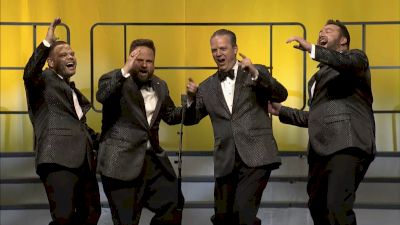 Quorum Tops A Talented Field
Quorum Tops A Talented FieldJul 10, 2022
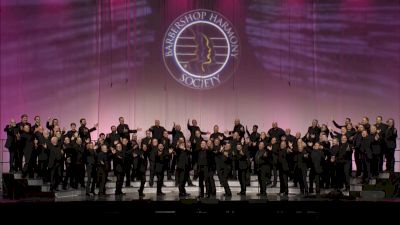 Music City Wins it All
Music City Wins it AllJul 9, 2022
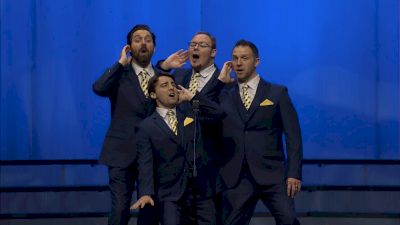 Stage is Set for Quartet Finals
Stage is Set for Quartet FinalsJul 8, 2022
 Clementones Squeeze in a Varsity Win
Clementones Squeeze in a Varsity WinJul 7, 2022
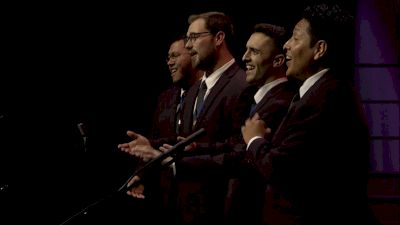 Highlights from NextGen Varsity Contest
Highlights from NextGen Varsity ContestJul 7, 2022
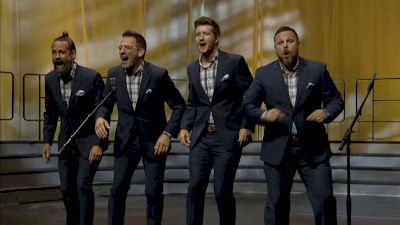 Top 20 Quartets Named at BHS Charlotte
Top 20 Quartets Named at BHS CharlotteJul 6, 2022
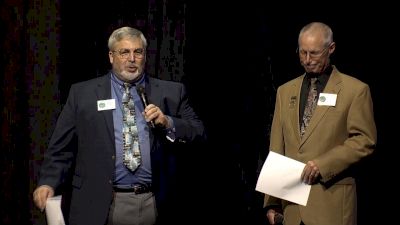 BHS Call Off - Top 20 Quartets
BHS Call Off - Top 20 QuartetsJul 6, 2022
 A Historic Kick Off in Charlotte
A Historic Kick Off in CharlotteJul 6, 2022
 BHS Charlotte - Day 1
BHS Charlotte - Day 1Jul 6, 2022